Listeria Outbreak Has Hit 10 States—These Are the Foods Most Likely to Cause Listeriosis
Use caution if you regularly consume any of these foods, experts say.
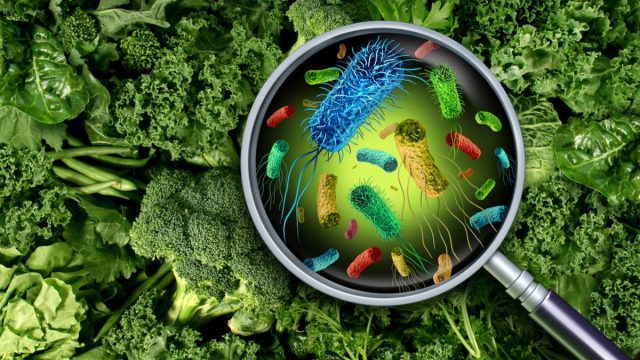
The current Listeria outbreak has many of us wondering which foods are safe to eat, and which are best avoided—at least until the Centers for Disease Control (CDC), which first sounded the alarm about the outbreak, provides more information about source of the problem.
Listeria poisoning results from exposure to the bacteria L. monocytogenes, which "can be found in moist environments, soil, water, decaying vegetation and animals, and can survive and even grow under refrigeration and other food preservation measures," according to the U.S. Food & Drug Administration (FDA). "When people eat food contaminated with L. monocytogenes, they may develop a disease called listeriosis," the agency explains.
The CDC says the current outbreak is likely affecting more than just the 10 states it listed in a February notice, which prompted us to ask experts which foods are most likely to cause listeriosis, and how worried the general public should be. Read on to find out which foods to watch out for.
READ THIS NEXT: Listeria Outbreak Has Hit 10 States—These Are the Warning Signs of Listeriosis.
Listeriosis is more dangerous for certain groups of people.

Bernadette Boden-Albala, MPH, DrPh, the director of the public health program at the University of California, Irvine, says that people 65 and older, those with weakened immune systems, pregnant people, and newborns are most at risk from listeriosis.
"For the general population that is not part of [those] groups, listeria exposure can run the spectrum of symptoms from mild to very severe," she explains. "But if you are part of those groups, then Listeria can become very deadly. If you have a fever, muscle aches, and tiredness, then call your healthcare provider immediately."
"There have been 11 cases of Listeria across 10 states linked to the current outbreak. The FDA and CDC have still not been able to trace the source of the outbreak, however, no deaths have been reported," Dahlia Philips, MD, Medical Director for Partnership in Care/SNP at MetroPlusHealth, tells Best Life. "Unfortunately, there are multi-state outbreaks of Listeria almost annually in the U.S. Following smart food safety measure will ensure the public stays protected."
Boden-Albala stresses that because the CDC has not yet discovered what specific food is behind the current outbreak, it's best for people in vulnerable demographics to "avoid consuming any of the possible food groups that can carry Listeria," noting that "for anyone else, it is still best to avoid consumption of those items, but you need not be as concerned."
On that note, we've compiled a list of the nine foods Boden-Albala and Philips say are most likely to cause listeriosis.
1
Unpasteurized milks and cheeses
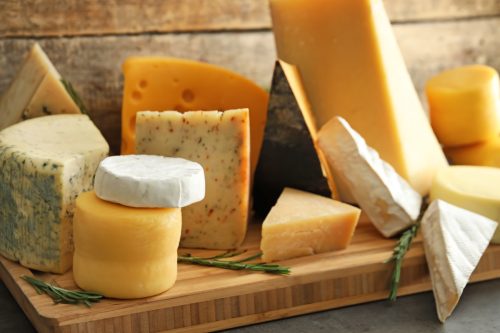
Milk and cheese that have not undergone the pasteurization process are the number-one item to be wary of, according to both Philips and Boden-Albala.
"Listeria is easily killed by high temperatures," says Philips—and since pasteurization involves heating things to kill bacteria, it makes sense that anything which hasn't been heated could carry listeria contamination.
Queso fresco and Brie are just two cheeses Philips names as Listeria suspects, but any soft cheese is likely unpasteurized.
READ THIS NEXT: 2.5 Million Pounds of Meat Recalled Over Contamination Fears, USDA Warns.
2
Ice cream and yogurt

Sorry, ice cream fans—cheese and milk aren't the only things that might be unpasteurized, and therefore potentially dangerous. Unpasteurized ice cream—and yogurt!—can also carry Listeria, both Philips and Boden-Albala say.
3
Raw fruits and vegetables
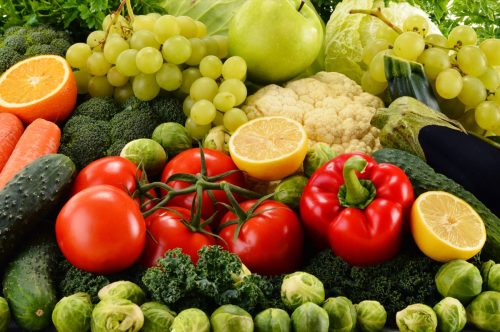
They may be healthy, but raw fruits and vegetables are also possible suspects when it comes to listeria poisoning. Washing raw fruits and vegetables before eating them is crucial, Peter Michael, MD, Chief Medical Officer of VUE, tells Best Life.
4
Hot dogs and deli meats

The increased risk of cancer isn't the only reason to reconsider your consumption of deli meats. The experts we talked to all said that hot dogs and cold cuts can carry Listeria.
Philips adds that dried or fermented sausages are another possible source of contamination, as well as pre-made deli salads like coleslaw, potato salad, tuna salad, and chicken salad.
For more health advice sent directly to your inbox, sign up for our daily newsletter.
5
Smoked fish and seafood
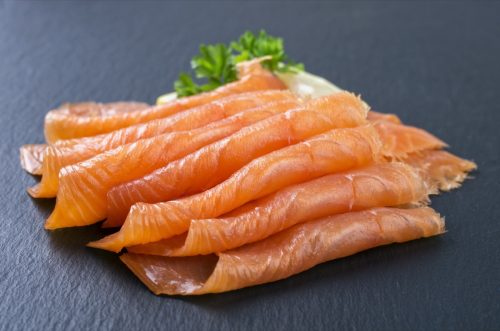
By now, you might be getting the message: Foods that aren't heated are more likely to cause listeriosis. Philips and Boden-Albala say that includes the lox on your Sunday morning bagel, unfortunately.
6
Raw sprouts
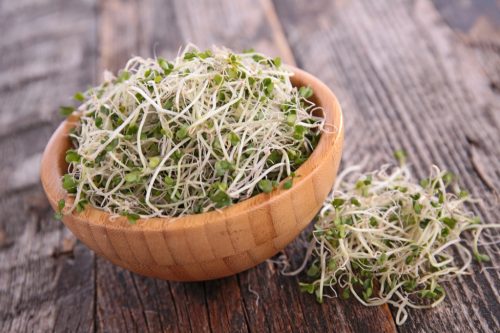
Love adding a fistful of crunchy, raw sprouts to your salads and sandwiches? You may want to lay off for a bit. "Heating foods is important," Philips emphasizes, in case we needed reminding.
7
Cut melon
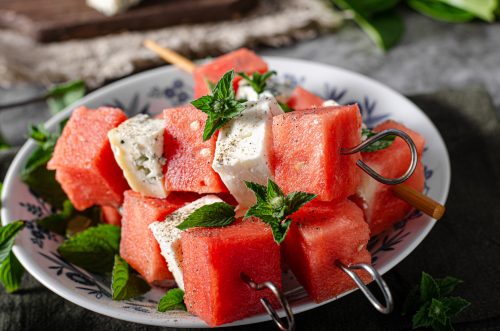
"Cut melon left out in the heat for more than two hours" is another prime suspect when it comes to listeriosis, says Boden-Albala. With summer picnics and barbecues just around the corner, this bodes ill for your favorite melon recipes.
READ THIS NEXT: Soup Sold at Walmart and Other Major Retailers Recalled Due to Health Concerns, FDA Warns.
8
Salad bars and buffets

Who doesn't love loading up their plate at an all-you-can-eat buffet or salad bar? But be careful: "Any buffet or salad bars that have no time indication for how long [food] has been left out" could be Listeria-laden, warns Boden-Albala.
9
Undercooked poultry
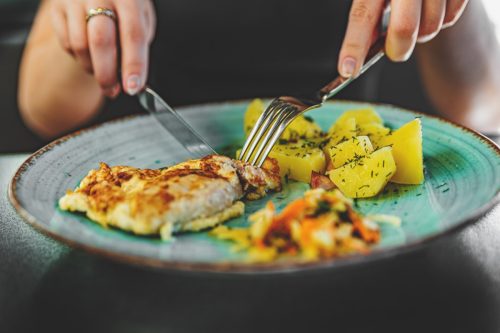
Finally, be sure to thoroughly cook chicken or turkey before you consume it. Experts agree that if it's still pink, it could carry Listeria—and the FDA lists raw or undercooked poultry as one of the foods that's been linked to past Listeria outbreaks.





















